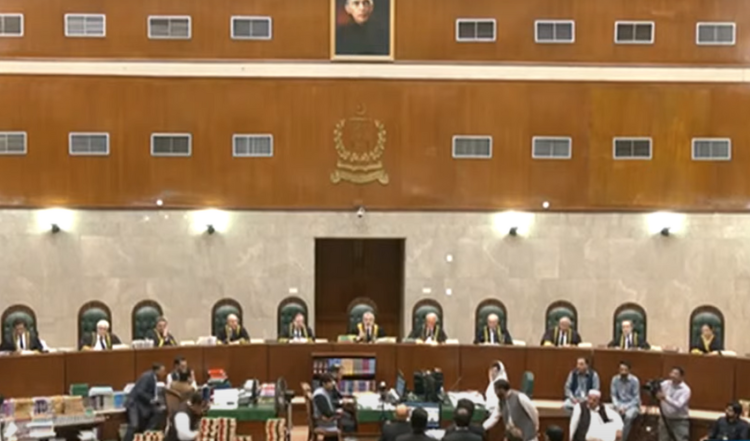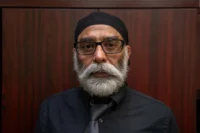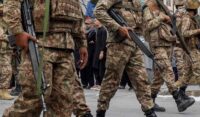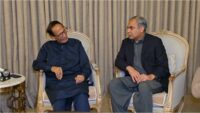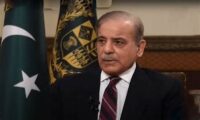Live Proceedings and Chief Justice’s Statements
The full court resumed its hearing of multiple petitions challenging the Supreme Court (Practice and Procedure) Act 2023, with live broadcasts on TV channels. The 14-judge Supreme Court bench, led by Chief Justice Qazi Faez Isa, is overseeing the case, which has garnered significant attention.
Chief Justice’s Views and Legal Arguments
During the hearing, Chief Justice Isa emphasized that the law affects not only the current chief justice and senior judges but also future appointees to these positions. He discussed sharing his powers with senior judges and the need to resolve whether the law conflicts with the constitution. Various justices raised questions and concerns, including the purpose of the act, the right to appeal, and Parliament’s legislative procedures. The Chief Justice highlighted the importance of balancing powers and respecting democratic principles.
The Chief Justice hinted at concluding the case on the same day, emphasizing that it had consumed enough time. The case raises critical issues regarding the separation of powers, judicial independence, and the constitutionality of the Supreme Court (Practice and Procedure) Act 2023.
The full court resumed its hearing of multiple petitions challenging the Supreme Court (Practice and Procedure) Act 2023, with the proceedings being broadcast live on television channels in Pakistan. The 14-judge Supreme Court bench, led by Chief Justice Qazi Faez Isa, is presiding over the case, which has garnered significant attention.
During the hearing, Chief Justice Isa emphasized that some people perceive a confrontation between the Supreme Court and Parliament due to this law. He stressed that he would not engage in a war of words and pointed out that the law affects not only the chief justice and senior judges but also future appointees to these positions.
CJP Isa indicated that he initially considered not participating in the case but eventually decided that all judges should hear it. He also mentioned meeting with representatives of the Pakistan Bar Council and Supreme Court Bar Association, who expressed concerns about their voices not being heard.
The Chief Justice emphasized that the court should not become a platform for political debates and that the Supreme Court (Practice and Procedure) Act is now law. He urged lawyers to focus on whether the law conflicts with the constitution.
CJP Isa questioned whether judicial independence was solely for the judiciary’s benefit or if it also served the people’s interests. He requested that lawyers inform the court about any constitutional conflicts arising from the law.
Throughout the proceedings, various justices raised questions and concerns. Justice Athar Minallah suggested that the law’s purpose was to provide access to justice and questioned its constitutionality. Justice Ijazul Ahsan expressed that Parliament should have established a comprehensive procedure before enacting the legislation.
After a break, the petitioner’s lawyer, Hassan Irfan, argued that Article 184(3) of the Constitution mandated the Supreme Court to exercise certain powers. The Chief Justice inquired whether this power extended to the entire Supreme Court, not just the chief justice.
Irfan referred to Article 50, highlighting disputes within Parliament over the bill’s passage. Justice Minallah questioned whether Parliament had the authority to bring transparency to the Supreme Court’s internal affairs.
As the hearing continued, Uzair Bhandari, representing Tehreek-e-Insaf, argued that Supreme Court Rules would prevail over Parliament’s laws. Justices sought clarification on this issue and the right of appeal under the law.
Chief Justice Isa emphasized his commitment to upholding the Constitution rather than protecting Supreme Court decisions. The judges deliberated on the uniqueness of Article 184(3) authority, its implications, and the balance between Parliament and the judiciary.
The hearing continued, addressing questions about the hierarchy of laws and the right to appeal. Chief Justice Isa stressed the importance of avoiding absolute power concentration and respecting democratic principles.
This case, which has already seen multiple hearings and debates, has raised critical issues regarding the separation of powers, judicial independence, and the constitutionality of the Supreme Court (Practice and Procedure) Act 2023.
